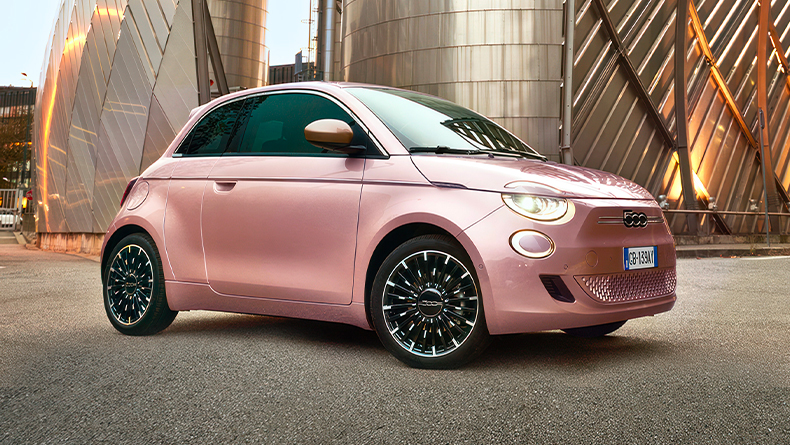Electric vehicles (EVs) have steadily transformed the automotive industry, offering a cleaner, more efficient alternative to traditional gasoline-powered cars. As prices for EVs continue to drop, more consumers are considering them as a viable option for everyday transportation.
However, while affordability remains a key factor in the purchasing decision, another important consideration often overlooked is the warranty coverage that accompanies these vehicles.
Warranties play a critical role in protecting owners from unexpected repair costs, particularly given the unique components found in EVs such as batteries, electric motors, and advanced electronics.
These parts can be expensive to repair or replace, and warranties provide a safety net that can greatly influence the long-term cost and peace of mind associated with owning an electric vehicle.
In the affordable EV segment, warranty terms can vary dramatically. Some manufacturers offer generous warranties extending up to 10 years or 100,000 miles on their batteries and powertrain components, signaling strong confidence in their technology and reassuring buyers of durability and reliability.
On the other hand, some budget-friendly EVs come with shorter coverage periods, which may reduce the initial purchase price but potentially increase maintenance costs as the vehicle ages.
These differences in warranty length and coverage scope can significantly affect the ownership experience, especially since electric vehicles are relatively new compared to traditional cars, and their long-term reliability is still being established.
This article aims to provide clarity for potential EV buyers by comparing five affordable electric vehicles known for their long warranty coverage against five affordable EVs with shorter warranty terms.
By examining the benefits and limitations of each, readers can better understand how warranty length influences cost, risk, and ownership satisfaction.
It will also highlight the importance of considering warranty alongside range, performance, and price when selecting an electric vehicle. Whether you are a first-time EV buyer or someone looking to upgrade your current vehicle, understanding warranty differences can help you make a more informed decision that aligns with your budget and driving needs.
While price tags and battery range often grab attention, the warranty is a crucial factor in ensuring that an affordable electric vehicle remains a smart investment over time. This guide will help you navigate those nuances, weighing long-term protection against initial affordability to find the best fit for your lifestyle.
5 Affordable EVs With Long Warranties
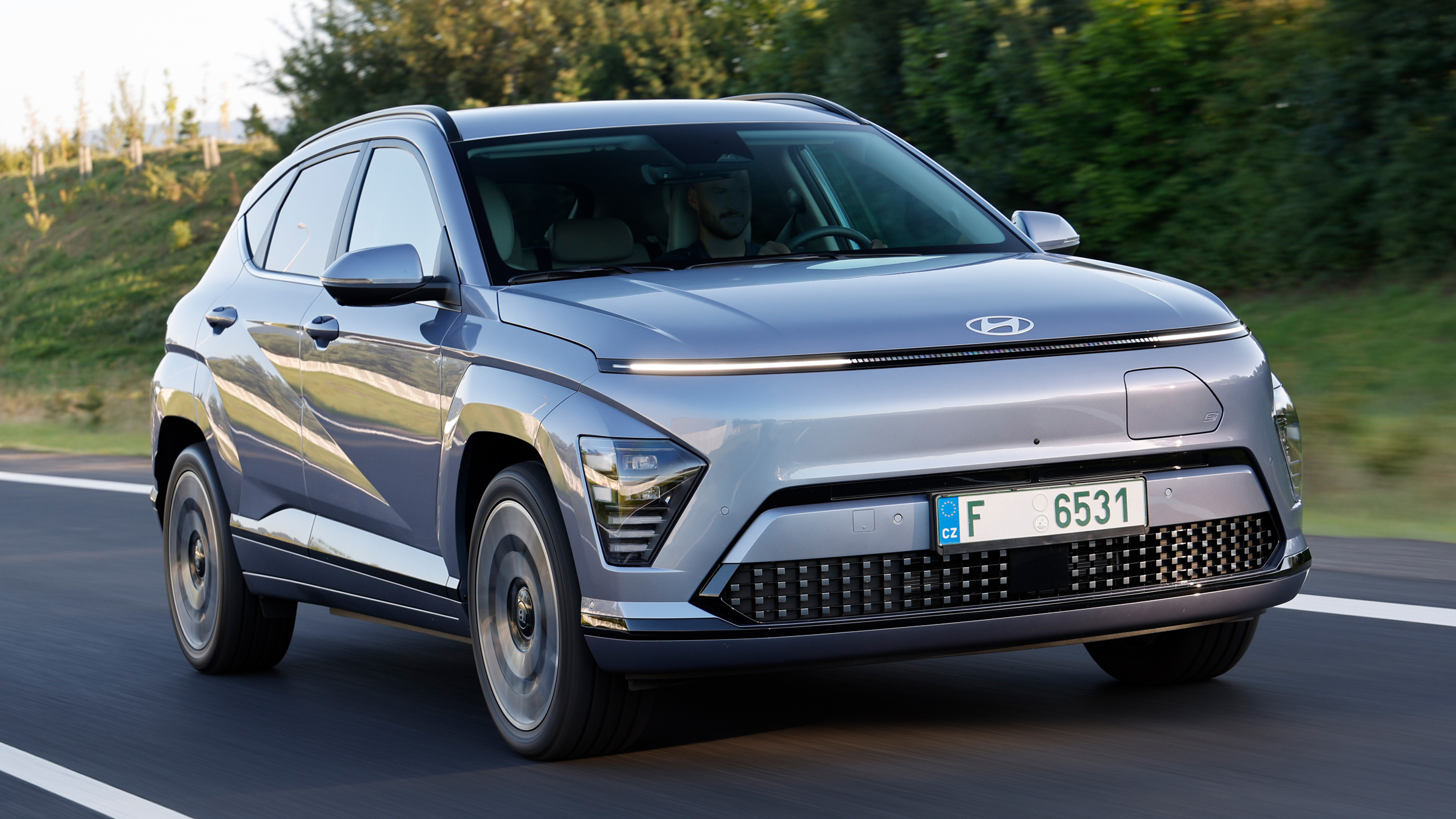
1. Hyundai Kona Electric
The Hyundai Kona Electric stands out as one of the most affordable EVs that combines impressive performance with one of the longest warranties in its class. Hyundai’s warranty coverage for the Kona Electric includes a 10-year or 100,000-mile warranty on the battery and powertrain, which is quite significant in the affordable EV market.
This warranty period is designed to address some of the most critical and expensive components of electric vehicles, specifically the lithium-ion battery pack and the electric motor.
Since battery degradation can be a major concern for EV owners, this extended warranty provides substantial reassurance to buyers worried about the long-term durability and replacement costs of these parts.
The extended coverage effectively protects owners from major out-of-pocket expenses should the battery capacity fall below a certain threshold, which is typically around 70% of its original capacity.
Moreover, Hyundai’s warranty doesn’t stop at the battery and powertrain. The company also offers a five-year or 60,000-mile limited warranty on other vehicle components and roadside assistance for the same period, covering a wide range of potential issues that may arise during ownership.
This comprehensive protection is particularly important in affordable EVs, where owners may not have the budget for unexpected repairs.
Hyundai’s confidence in its vehicle’s build quality is evident in the warranty, and it reflects the automaker’s commitment to supporting its customers for the long haul. By offering an extended warranty, Hyundai helps reduce the perceived risk of switching from traditional gasoline vehicles to electric.
From a performance perspective, the Kona Electric delivers more than just long warranty coverage. It provides a respectable EPA-estimated range of approximately 258 miles per charge, placing it well ahead of many competitors in the affordable EV segment.
The vehicle’s efficient powertrain and regenerative braking system contribute to preserving battery health over time, which aligns well with the lengthy warranty terms.
Hyundai also integrates smart thermal management in the battery system, which helps maintain optimal battery temperature and prolong lifespan, factors that warranty coverage complements by offering peace of mind to buyers. This means owners can expect both reliable daily performance and financial protection.
Furthermore, Hyundai’s extensive dealer network and favorable customer service reputation enhance the warranty’s practical value. Having easy access to authorized service centers and warranty repairs ensures that owners will not face undue inconvenience if warranty-covered issues arise.
This aspect is crucial in the ownership experience, as long warranties only benefit buyers if claims can be processed efficiently and transparently.
Combining affordability, range, quality, and a long warranty makes the Hyundai Kona Electric a very appealing choice for cost-conscious consumers who want to enter the EV market without sacrificing reliability or coverage.
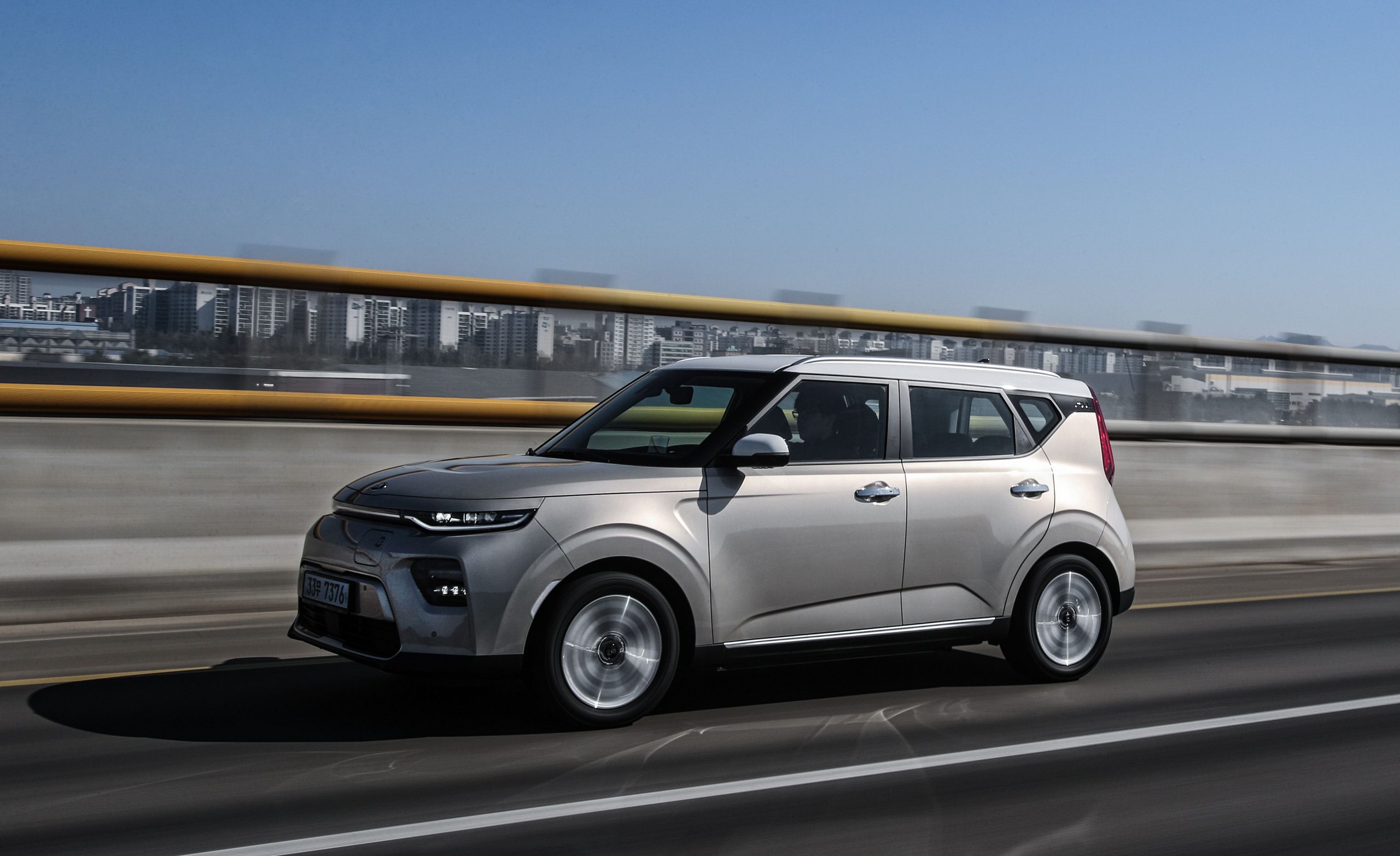
2. Kia Soul EV
The Kia Soul EV offers a compelling alternative for budget buyers seeking long warranty coverage in an affordable electric vehicle. Kia’s warranty policy, closely related to its corporate sibling Hyundai, provides a 10-year or 100,000-mile warranty on the battery and powertrain components, matching the industry’s longer warranty standards in this segment.
This level of coverage is relatively rare among affordable EVs, which often feature shorter warranty durations to keep costs down. The Kia Soul EV’s warranty coverage is designed to inspire confidence, reassuring owners that they will be protected against costly battery failures or drivetrain issues during the early years of ownership.
This protection is critical given the expense of battery replacements, which can easily exceed several thousand dollars if not covered. The broader warranty for the Kia Soul EV also includes a five-year or 60,000-mile limited vehicle warranty, which covers defects in materials or workmanship.
This means that in addition to the battery and powertrain, other essential vehicle parts such as the suspension, brakes, and electrical systems are safeguarded for a reasonable period.
Kia’s commitment to after-sales service quality and warranty support enhances the ownership experience by providing customers with a safety net against unforeseen mechanical problems.
For buyers purchasing an affordable EV, the warranty terms can greatly influence their confidence in choosing electric technology over conventional combustion engines.
In terms of range and practicality, the Kia Soul EV delivers a competitive EPA range of approximately 243 miles on a full charge, which makes it suitable for daily commuting and even longer trips with proper planning.
Its boxy design offers a spacious interior and good cargo capacity, contributing to its appeal for families and urban drivers alike. The powertrain’s efficiency, combined with Kia’s use of advanced battery management systems, reduces the risk of premature battery degradation, aligning well with the lengthy warranty coverage.
For buyers, this means not only initial affordability but also long-term value as the vehicle remains reliable and covered for critical repairs.
Lastly, Kia’s extensive warranty network and proactive customer support system ensure that owners have access to warranty services without unnecessary delays or complications. This practical aspect of the warranty cannot be overstated, as a lengthy warranty is only valuable if supported by responsive service and straightforward claims processes.
Kia’s positive reputation for honoring warranty claims and addressing customer concerns promptly adds an important layer of assurance for prospective Soul EV owners. The combination of a spacious, affordable EV with one of the longest warranty programs makes the Kia Soul EV a highly competitive option for cost-conscious buyers seeking peace of mind.
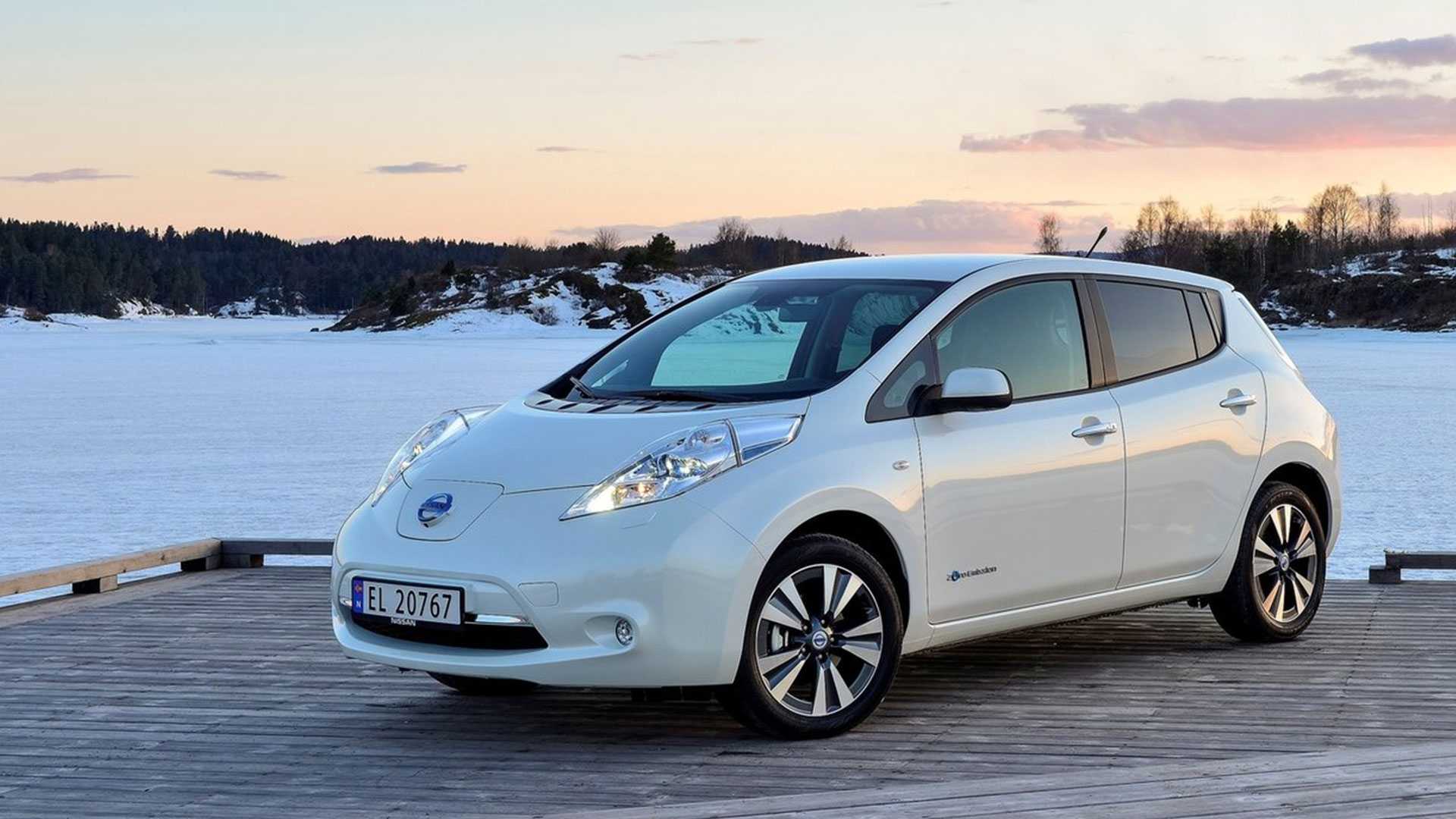
3. Nissan Leaf
The Nissan Leaf has long been recognized as one of the pioneers in the affordable electric vehicle market, and its warranty coverage remains a key selling point. Nissan provides a 8-year or 100,000-mile warranty on the battery, which protects owners from significant battery capacity loss or defects.
While this warranty is slightly shorter than Hyundai and Kia’s 10-year coverage, it still ranks among the longest in the affordable EV segment, offering considerable peace of mind for buyers. Nissan also offers a 5-year or 60,000-mile limited vehicle warranty on other components, ensuring that most parts of the car remain covered during the initial ownership period.
Nissan’s battery warranty is specifically designed to address concerns about battery longevity, a critical factor for electric vehicles. It guarantees that if the battery capacity falls below 9 bars on the battery capacity gauge (out of 12), Nissan will repair or replace the battery under warranty.
This clear threshold gives owners a transparent understanding of what to expect and removes much of the guesswork when it comes to battery health.
Additionally, the Leaf benefits from Nissan’s early experience and continuous improvement in EV technology, with updated models featuring better battery management systems and thermal regulation, which help extend the battery’s operational life.
From a performance standpoint, the Nissan Leaf offers a range that varies by model year and battery size, typically ranging from around 150 miles on older base models to over 226 miles on the Plus versions. This flexibility allows buyers to select the version that best fits their driving needs and budget.
The Leaf’s user-friendly design, combined with its warranty coverage, makes it a practical choice for those new to electric vehicles. Its widespread adoption has also contributed to a robust network of service centers and charging infrastructure, further supporting the ownership experience.
Furthermore, Nissan’s long-standing presence in the EV market means it has refined both its warranty support and customer service practices. Owners benefit from clear warranty policies and widespread availability of replacement parts, which reduces potential downtime during repairs.
This infrastructure support, alongside the warranty, ensures that the Leaf remains a trustworthy and cost-effective option in the affordable EV category. The Nissan Leaf’s warranty terms and mature technology make it a safe bet for buyers prioritizing reliability and affordability.
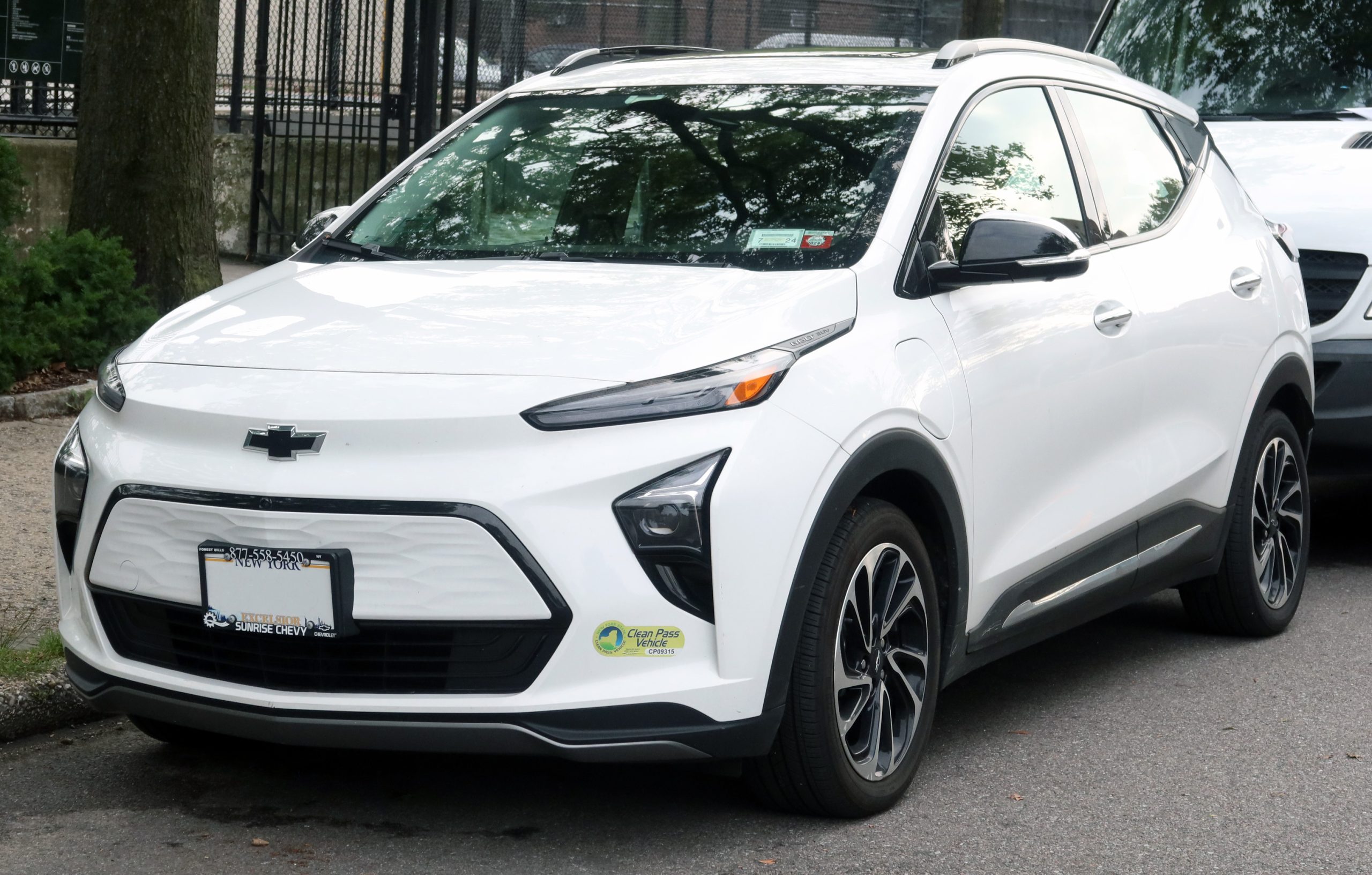
4. Chevrolet Bolt EV
The Chevrolet Bolt EV offers a strong warranty package among affordable electric vehicles, reflecting General Motors’ commitment to supporting electric vehicle buyers.
The Bolt’s warranty includes an 8-year or 100,000-mile limited coverage for the battery and electric components, which helps protect owners against costly repairs related to battery degradation or electrical failures.
This warranty length, though slightly shorter than Hyundai’s and Kia’s 10-year terms, remains one of the longer ones available for affordable EVs. It reassures buyers that the critical and expensive-to-replace parts of the vehicle are covered over a significant period of time, reducing the financial risk associated with owning an EV.
Beyond battery coverage, Chevrolet also provides a 3-year or 36,000-mile bumper-to-bumper warranty for other components of the Bolt EV. While this term is shorter than some competitors’, the comprehensive coverage of the battery and electric drive system balances the warranty package.
The Bolt’s warranty coverage is often praised for the transparency and ease with which owners can process claims. General Motors has invested in expanding its dealer network and service facilities capable of handling EV repairs, ensuring that warranty services are accessible and convenient.
Performance-wise, the Chevrolet Bolt EV offers an EPA-estimated range of about 259 miles on a full charge, which places it competitively within the affordable EV market. The Bolt’s nimble handling and spacious interior add to its appeal for urban drivers and small families.
Its battery system is designed to maintain performance through robust thermal management and software controls, helping to maximize longevity in line with the warranty coverage. Chevrolet’s investment in battery technology and quality control further supports the confidence reflected in the warranty terms.
Finally, the Chevrolet Bolt EV’s warranty contributes to its reputation as a practical, affordable electric vehicle. Its combination of range, performance, and warranty protection helps lower the barriers to EV ownership for many consumers.
The extended warranty terms covering the battery and electric drivetrain are particularly important because they mitigate the risks associated with the most costly repairs. For buyers seeking an affordable EV with solid warranty backing, the Bolt EV offers an attractive balance of cost, coverage, and capability.
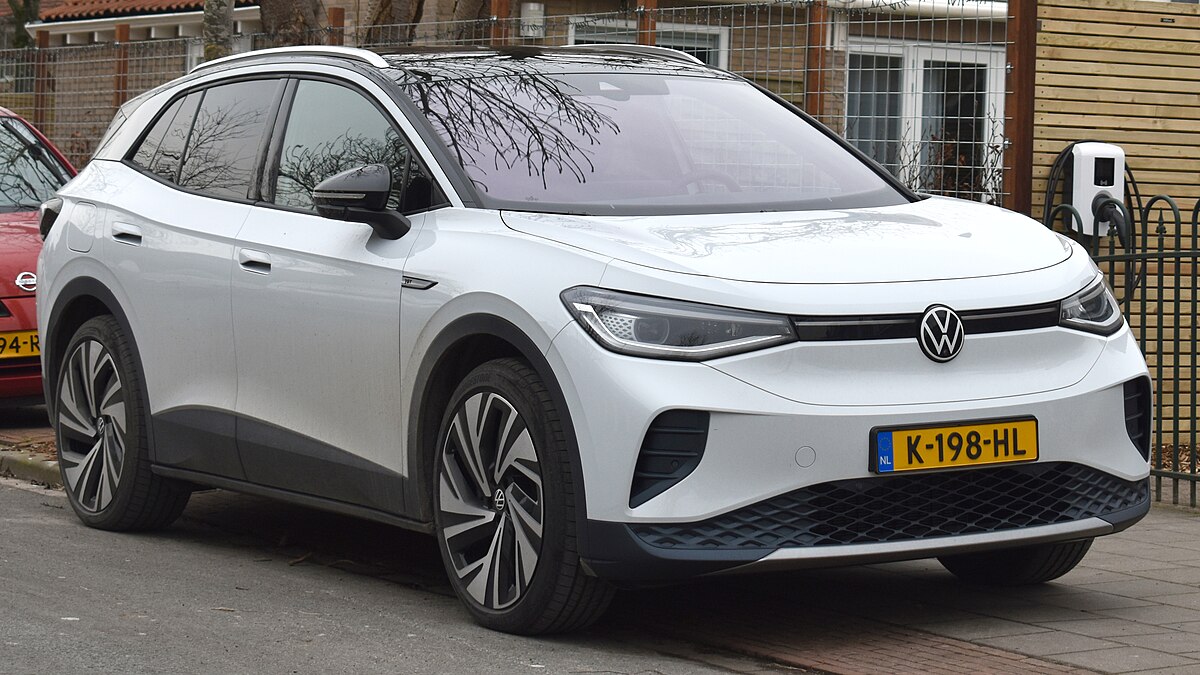
5. Volkswagen ID.4
Volkswagen’s ID.4 is a relatively new entrant in the affordable electric vehicle space but quickly made a name for itself with a long and comprehensive warranty. Volkswagen offers an 8-year or 100,000-mile warranty on the battery, alongside a 4-year or 50,000-mile limited warranty on the vehicle.
The battery warranty specifically covers capacity loss and defects, providing reassurance for buyers concerned about the longevity and reliability of this critical component. This warranty period is comparable to many competitors in the segment and highlights Volkswagen’s confidence in the ID.4’s battery technology and build quality.
In addition to the battery warranty, the ID.4 features modern EV technology, including a sophisticated thermal management system for the battery that helps maintain its health over time.
This system actively cools or heats the battery to optimize performance and prevent premature aging, which supports the vehicle’s warranty coverage by reducing the likelihood of battery-related issues. The ID.4’s powertrain warranty also covers the electric motor and associated components, providing comprehensive protection for the most vital systems.
Performance-wise, the ID.4 offers an EPA-estimated range of approximately 250 miles, which is competitive for its class. Its smooth ride, spacious interior, and advanced infotainment system add to its appeal as a practical and affordable EV option.
Volkswagen’s warranty program, combined with the vehicle’s features and build quality, offers a compelling package for buyers who want peace of mind in addition to solid performance. The brand’s reputation and expanding dealer network also support a positive ownership experience, ensuring warranty claims are handled efficiently.
Lastly, Volkswagen’s commitment to sustainability and quality is reflected in the ID.4’s warranty coverage. The long battery warranty aligns with the automaker’s goal to build customer trust and encourage EV adoption.
For buyers looking for an affordable electric vehicle with a long warranty that protects their investment, the ID.4 provides a balanced option with solid performance, modern technology, and reliable warranty terms.
5 Affordable EVs With Short Coverage Terms
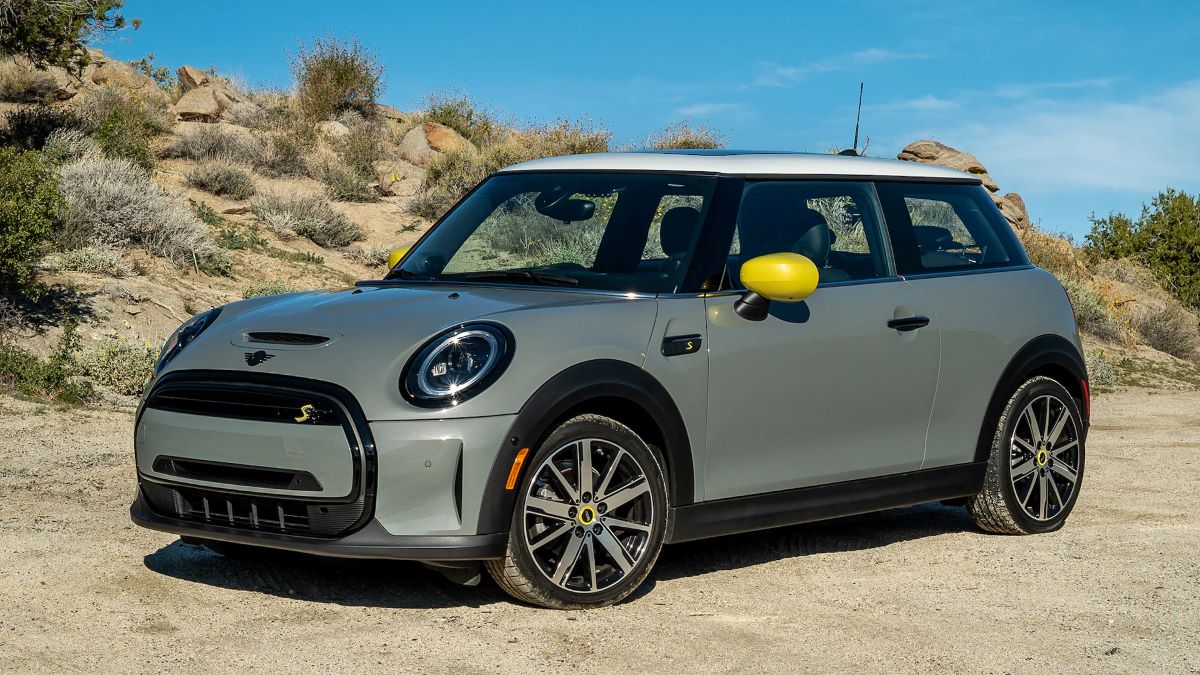
1. MINI Cooper SE Electric
The MINI Cooper SE Electric is a fun and stylish entry into the affordable EV market, but its warranty coverage is shorter compared to some competitors. MINI offers a limited vehicle warranty of only 4 years or 50,000 miles and a battery warranty that covers 8 years or 100,000 miles, which may seem reasonable at first glance.
However, when compared to the extended warranties of Hyundai or Kia, the MINI’s general coverage period feels relatively brief, especially considering that many affordable EV buyers seek the longest protection possible.
The shorter bumper-to-bumper warranty means that issues not related to the battery or powertrain could become a financial burden sooner, especially once the limited warranty expires.
Beyond just the length, MINI’s warranty terms also reflect some restrictions in coverage scope. The vehicle warranty generally excludes wear-and-tear items and certain components that might be critical for EV owners, such as parts of the charging system or electrical accessories.
Since electric vehicles rely heavily on electrical components and specialized hardware, shorter warranty coverage and limited component inclusion can lead to unexpected expenses after the warranty expires.
For MINI owners, this means careful maintenance and potentially higher out-of-pocket costs beyond the battery warranty period, which could reduce the affordability of ownership.
From a performance perspective, the MINI Cooper SE offers a modest EPA range of about 110 miles, which is well below the 200+ mile range of many longer-warrantied competitors. The vehicle’s compact size and sporty handling appeal to city drivers or those who want a small EV with premium branding.
However, the limited range combined with shorter warranty coverage may discourage buyers looking for a practical, worry-free electric vehicle for longer daily driving or multi-year ownership. The risk of additional repair costs outside of battery coverage could be a deciding factor for many budget-conscious consumers.
Furthermore, MINI’s dealer network and customer support for EVs are still developing compared to larger manufacturers focused primarily on electric vehicles. This means that warranty service, while accessible, might not offer the same smooth experience or quick turnaround as more EV-focused brands.
The combination of a shorter warranty and relatively limited electric range positions the MINI Cooper SE more as a niche, lifestyle vehicle rather than a broad appeal affordable EV for long-term ownership. Buyers attracted to the MINI brand should weigh the trade-offs carefully, especially if warranty length and cost of ownership are priorities.
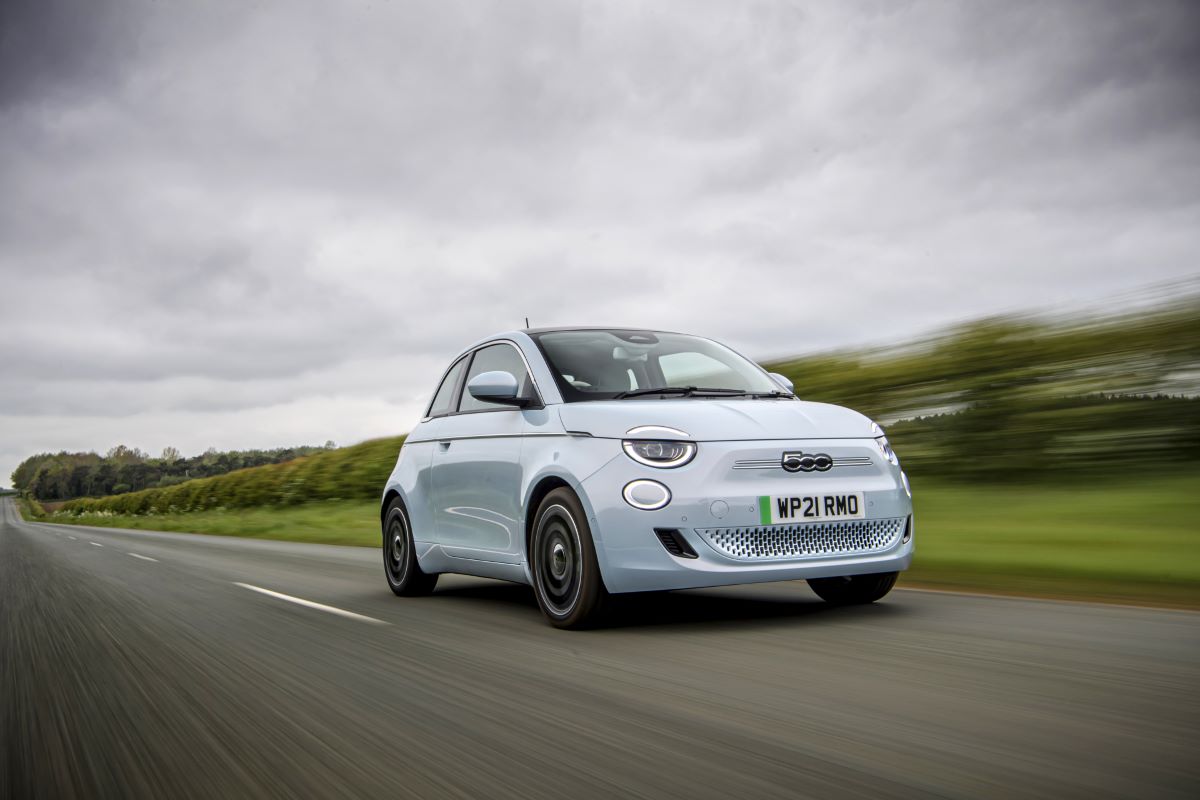
2. Fiat 500 Electric
The Fiat 500 Electric is one of the most affordable electric vehicles on the market, particularly appealing for those seeking a compact urban commuter. However, Fiat’s warranty coverage is shorter and more limited than many of its competitors. The standard vehicle warranty covers 4 years or 50,000 miles, while the battery warranty is 8 years or 100,000 miles.
Although the battery warranty is fairly standard in the EV industry, the shorter general coverage period for other vehicle components puts the Fiat 500 at a disadvantage compared to more generous offers from Hyundai, Kia, or Nissan. This shorter bumper-to-bumper warranty means that owners may be exposed to repair costs earlier in the vehicle’s lifecycle.
The limited warranty can be a concern because electric vehicles rely heavily on their electrical systems, which can include complex electronics, sensors, and charging infrastructure. If these systems experience failures after the 4-year coverage window, owners will be responsible for repair or replacement costs.
Considering the Fiat 500 Electric’s relatively small battery and modest performance, the shorter warranty may reduce buyer confidence, especially for those planning to keep the vehicle for more than a few years.
While the vehicle’s affordability makes it attractive upfront, the prospect of out-of-pocket maintenance costs beyond the warranty could diminish its long-term value proposition.
Performance-wise, the Fiat 500 Electric offers an EPA-estimated range of around 110 miles per charge, making it suitable primarily for short urban trips and daily commutes within city limits. Its compact size and stylish design appeal to younger buyers or those prioritizing aesthetics and convenience over range.
Despite this, the limited warranty and modest range might not satisfy drivers with longer daily routes or those who prefer the security of longer warranty protections. The relatively short warranty combined with limited driving range, presents a risk for some buyers who may face higher costs or inconvenience after a few years of ownership.
Moreover, Fiat’s dealer and service network for electric vehicles remains somewhat limited in certain regions, which can affect how easily warranty claims and repairs are handled.
This limitation, coupled with the shorter warranty period, means owners should be proactive in maintenance and mindful of potential expenses once the vehicle ages past the initial coverage.
Fiat’s approach with the 500 Electric appears focused on entry-level affordability and style, rather than long-term ownership assurances, which is an important consideration for buyers who prioritize security over upfront cost savings.
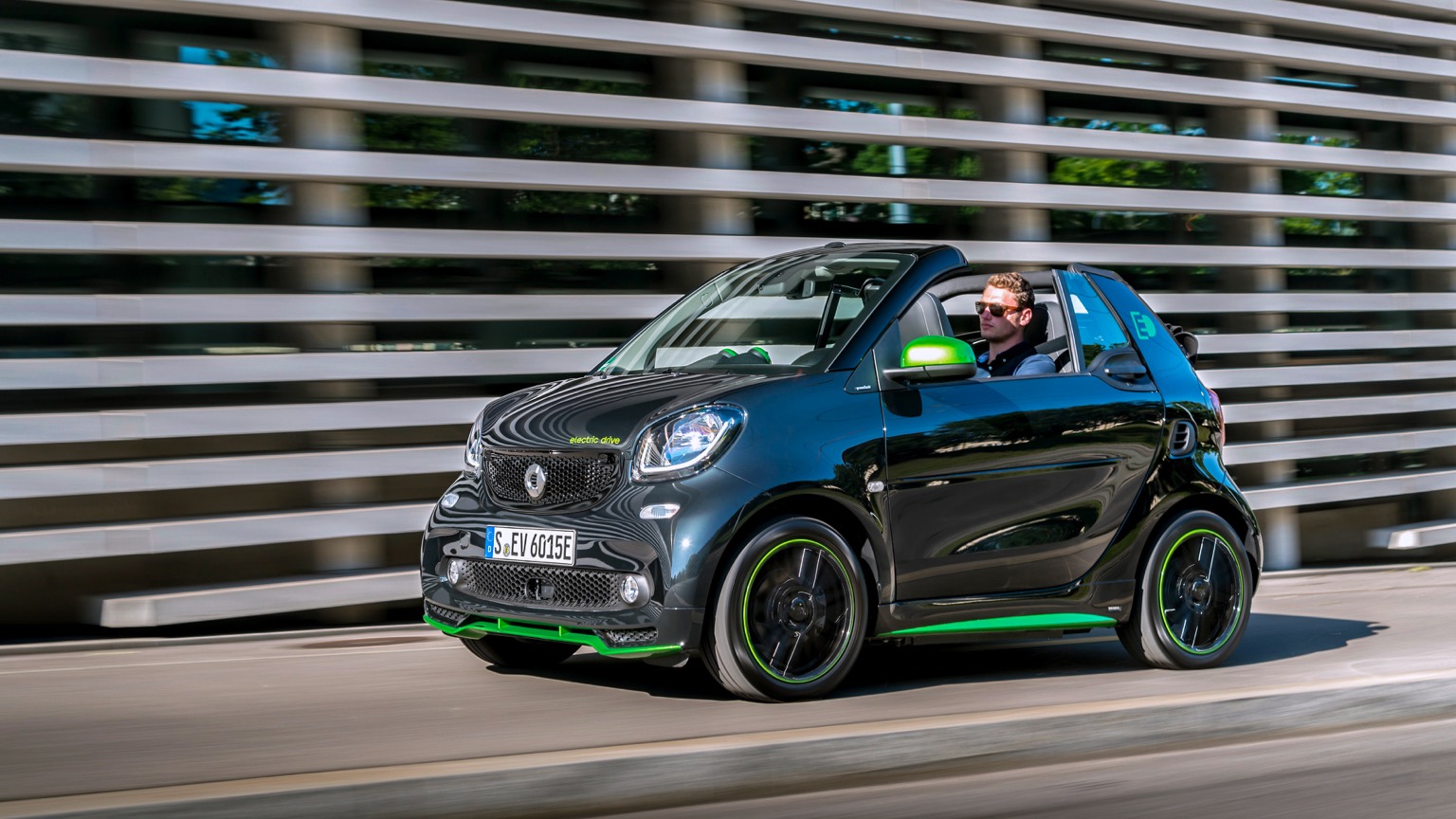
3. Smart EQ Fortwo
The Smart EQ Fortwo is a unique compact electric vehicle designed primarily for urban environments where space and maneuverability are at a premium. Its diminutive size and two-seat configuration make it highly specialized but also come with some warranty limitations that prospective buyers should consider.
The Smart EQ Fortwo typically comes with a 4-year or 50,000-mile limited vehicle warranty, and its battery warranty lasts 8 years or 100,000 miles.
Although the battery coverage aligns with industry norms, the shorter vehicle warranty reduces protection against potential repairs or component failures outside the battery and powertrain.
Because the Smart EQ Fortwo targets a niche market of urban drivers, its shorter warranty might reflect the manufacturer’s strategy to keep costs low and the vehicle price competitive.
However, the downside is that owners may face significant repair costs once the limited warranty expires, especially since replacement parts or specialized service for this relatively rare vehicle could be more expensive or harder to find. For a vehicle designed to appeal to city dwellers who may rely on their car daily, the potential for costly repairs after the warranty period might deter some buyers.
Performance of the Smart EQ Fortwo centers around its compactness and efficiency rather than range or speed. It offers an EPA-estimated range of about 58 to 70 miles, which is extremely limited compared to other affordable EVs.
This range restriction, combined with short warranty terms, means the Smart EQ Fortwo is best suited for very specific use cases such as short city trips or secondary vehicle roles.
The vehicle’s warranty does little to alleviate concerns about the longevity of critical components beyond the battery, making it a less attractive option for those wanting a primary vehicle with extensive coverage.
Additionally, the Smart brand has a limited dealership presence, which may result in longer wait times for service appointments and warranty repairs.
The restricted warranty term paired with a smaller service network emphasizes the need for potential buyers to carefully consider the total cost of ownership, including maintenance, repairs, and potential downtime.
For individuals seeking an affordable EV primarily for short-range city driving and willing to accept the trade-offs, the Smart EQ Fortwo offers a compact, quirky option but with the caveat of shorter warranty protection.
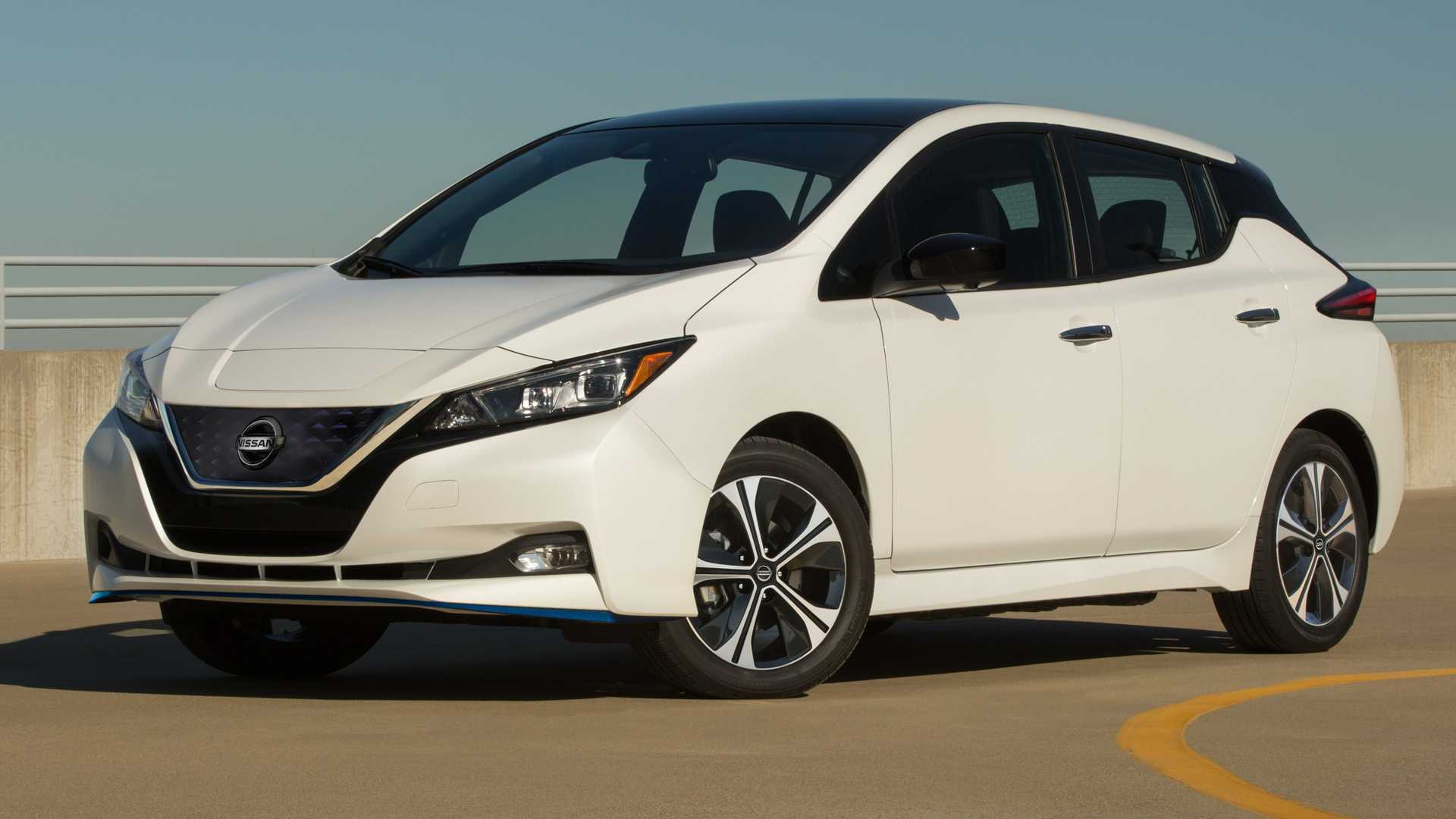
4. Nissan Leaf (Older Models)
While newer Nissan Leaf models offer competitive warranty terms, some of the older Leaf models in the used EV market come with significantly shorter coverage or warranties that have expired. For buyers considering affordable used EVs, this factor can be critical in the ownership experience.
Early Nissan Leafs often had an 8-year or 100,000-mile warranty on the battery, but the general vehicle warranty was shorter and sometimes limited to 3 years or 36,000 miles. This disparity means owners of older Leafs could face more frequent repair costs not covered by warranty, which can add up over time.
Used Nissan Leafs also present challenges related to battery degradation that may not be fully covered if the warranty period has expired or if the battery warranty terms are less comprehensive. The battery in older models often has less thermal management capability compared to newer ones, leading to more rapid capacity loss in hot climates or with intensive use.
Since the battery is one of the most expensive components to replace, shorter or expired warranties create uncertainty and potential financial risk for used EV buyers, especially if they do not have access to extended warranty options or certified pre-owned programs.
On the positive side, the Nissan Leaf’s simplicity and widespread popularity mean many independent shops can service the vehicle, potentially lowering repair costs. However, the absence of a long factory warranty on the vehicle’s other components still leaves owners vulnerable to mechanical or electrical failures beyond the battery.
The older Leaf models typically have a range between 84 to 150 miles, which is adequate for many urban users but could necessitate more frequent charging. Combined with limited warranty coverage, this means owners must be prepared for possible additional expenses as the vehicle ages.
While the Nissan Leaf has helped popularize EVs with its affordability and early market presence, older models with shorter warranty coverage require cautious consideration. Buyers seeking affordable EV options in the used market must carefully evaluate the remaining warranty period, battery condition, and potential repair costs.
Without the protection of an extended warranty, ownership can become more financially demanding than expected, which can impact the value and satisfaction of the purchase.
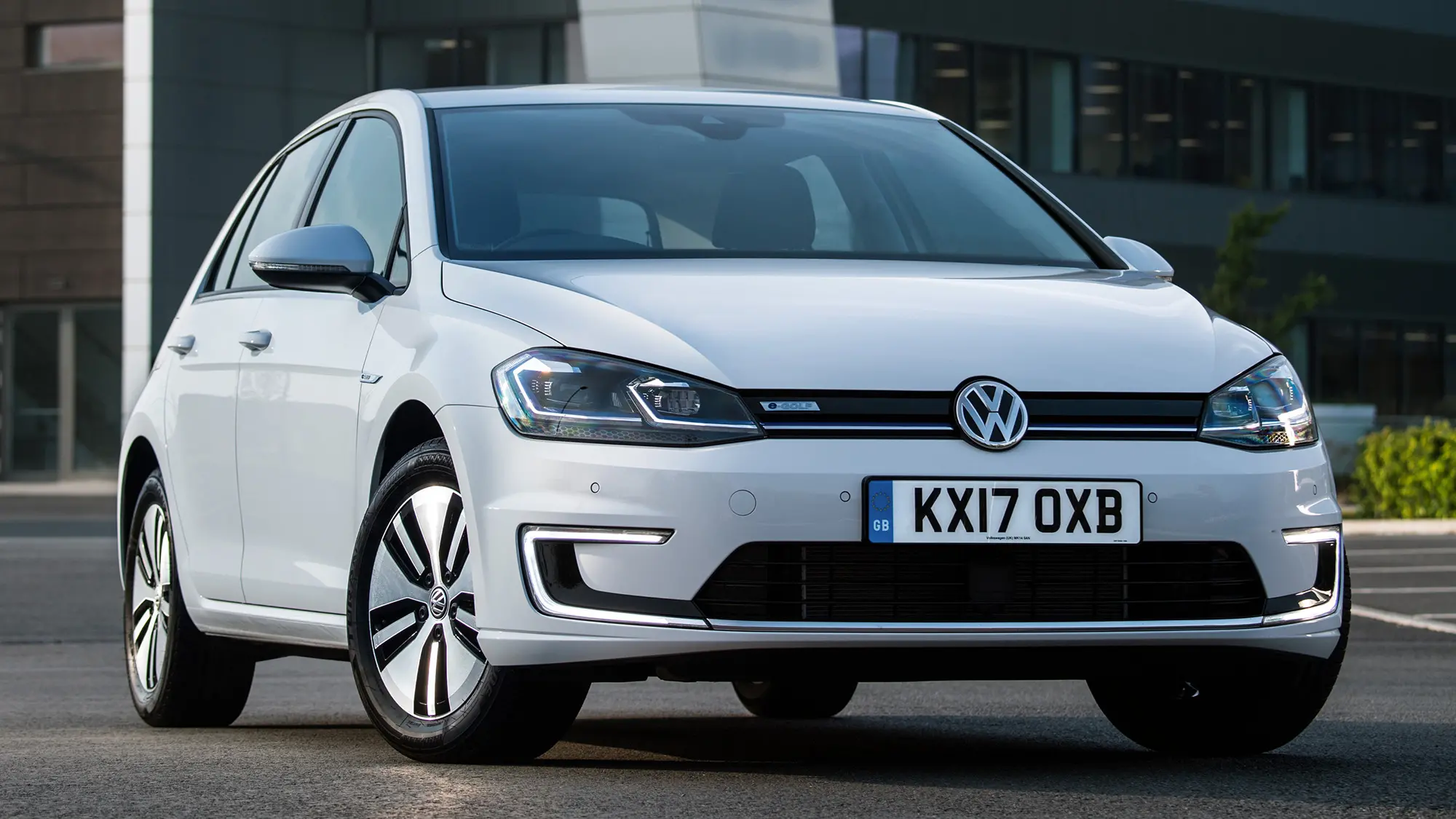
5. Volkswagen e-Golf
The Volkswagen e-Golf was one of the early affordable electric models in Volkswagen’s lineup before the arrival of the ID series. While it offered good driving dynamics and build quality, its warranty coverage has been relatively short compared to newer affordable EVs.
Volkswagen provided a 4-year or 50,000-mile limited vehicle warranty for the e-Golf, while the battery warranty extended to 8 years or 100,000 miles.
The disparity between these two warranty periods means owners received moderate protection on the battery but less comprehensive coverage on other vehicle systems, which could pose risks after the limited warranty expires.
The e-Golf’s shorter general warranty reflects its era of manufacture, where longer EV warranties were not yet a common competitive feature. Many parts outside of the battery and drivetrain could be susceptible to wear or failure beyond the 4-year coverage window, exposing owners to out-of-pocket expenses.
Given that the e-Golf is now mostly found in the used market, this shorter warranty heightens the importance of thorough vehicle inspection and consideration of additional warranty or service plans before purchase.
Performance-wise, the e-Golf delivers an EPA range of about 125 miles, which was reasonable at launch but now appears limited compared to modern affordable EVs. The vehicle’s comfortable ride, solid handling, and familiar design make it a practical choice for urban and suburban drivers, but the short warranty could deter buyers who prioritize long-term security.
The battery warranty still offers some protection, but the relatively short coverage on other components reduces peace of mind, especially as the vehicle ages.
Furthermore, Volkswagen’s service network is well-established, but older electric models like the e-Golf may face challenges in parts availability as production shifts toward newer EV platforms. Owners should be mindful of these factors when considering the e-Golf, as warranty coverage and servicing convenience both influence total ownership costs.
The Volkswagen e-Golf serves as a budget-friendly entry into electric driving, but requires buyers to be aware of the shorter warranty protections that come with it.

